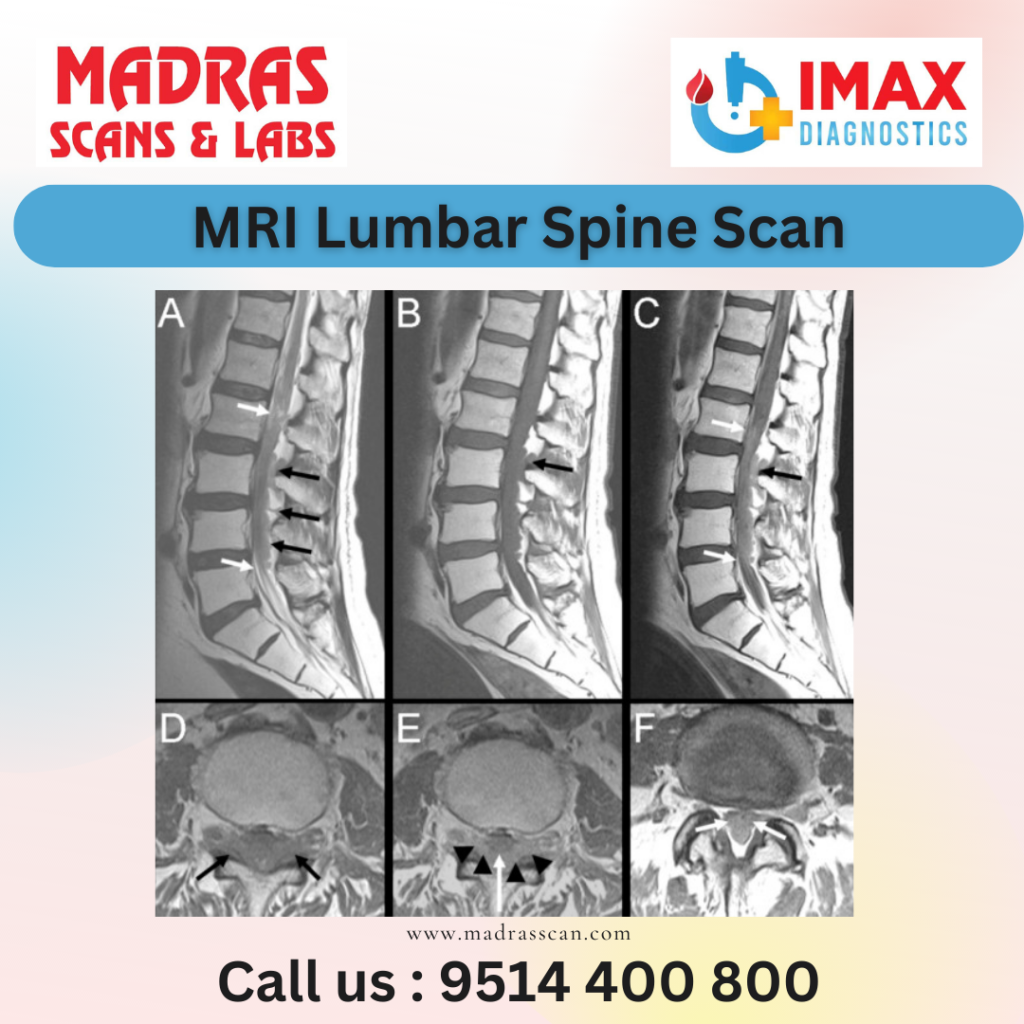
MRI (Magnetic Resonance Imaging) of the lumbar spine is a medical imaging technique that uses powerful magnets and radio waves to create detailed images of the structures within the lower back. This type of imaging has several benefits when it comes to assessing and diagnosing conditions related to the lumbar spine:
Detailed Visualization: MRI provides highly detailed images of the lumbar spine, including the vertebrae, discs, spinal cord, nerves, muscles, and other soft tissues. This level of detail allows doctors to identify even subtle abnormalities that might not be visible with other imaging methods.
Non-Invasive: MRI is a non-invasive imaging technique, which means it doesn’t require the use of ionizing radiation like X-rays or CT scans. This makes it a safer option for patients, particularly for repeated imaging or for certain populations like pregnant women and children.
Multi-Plane Imaging: MRI allows for imaging in multiple planes (sagittal, axial, and coronal), which provides a comprehensive view of the lumbar spine from different angles. This can help in better understanding the spatial relationships between structures.
Soft Tissue Differentiation: MRI is particularly effective at differentiating between different types of soft tissues. This is crucial for assessing conditions like herniated discs, spinal stenosis, tumors, and infections, as well as for evaluating the health of the spinal cord and nerve roots.
Functional Information: Certain MRI techniques, such as functional MRI (fMRI) and diffusion-weighted imaging (DWI), can provide insights into the functional status of the spinal cord and nerves. These techniques can help in understanding how different regions of the spine are functioning and how nerve pathways are affected.
Pain Source Identification: For patients with chronic lower back pain, an MRI scan can help identify potential sources of pain, such as herniated discs, degenerative changes, or spinal abnormalities. This information can guide treatment decisions.
Pre-Surgical Planning: If surgery is being considered as a treatment option, MRI images can provide surgeons with crucial information about the location and nature of abnormalities. This helps in planning the surgical approach and making informed decisions about the procedure.
Follow-Up and Monitoring: After treatment, MRI scans can be used to monitor the progress of conditions and the effectiveness of interventions. They can help doctors assess whether treatments are achieving the desired outcomes or if adjustments are needed.
Research and Education: MRI scans of the lumbar spine contribute to medical research, education, and the advancement of medical knowledge. They provide valuable insights into various spinal conditions and contribute to a better understanding of human anatomy and pathology.
While MRI lumbar spine scans offer many benefits, it’s important to note that they might not be necessary for every case of lower back pain or spinal issue. The decision to undergo an MRI should be made in consultation with a medical professional based on the patient’s symptoms, medical history, and clinical evaluation.
For a painless MRI Scan Lumbar Spine Scan in Chennai, consider Madras Scans & Labs as your go-to destination. It is the most trusted MRI scan center in Chennai with its exceptional and secure diagnostic services at an affordable pricing system.
Give us a quick call at 9514400800 or visit us at https://www.madrasscan.in to know more about MRI Scan and our attractive price package.
